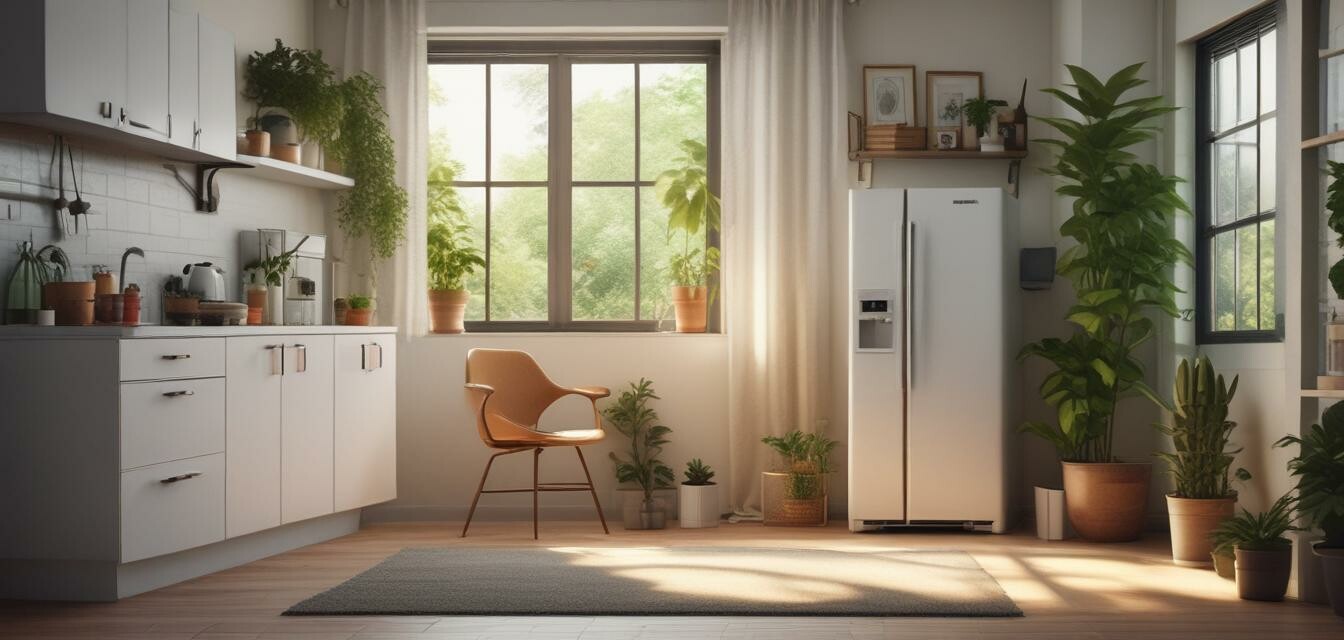
Energy saving habits for a sustainable home
- Implementing daily habits can lead to significant energy savings.
- Understanding your appliances can enhance their efficiency.
- Simple changes in behavior can contribute to a cleaner environment.
- Regular maintenance is key to retaining efficiency in your appliances.
- Every small action counts towards a sustainable lifestyle.
As we grow more aware of our impact on the environment, embracing energy-saving habits becomes essential. Energy-efficient appliances are designed to use less power, but how we operate and maintain them plays a crucial role in maximizing their benefits. In this article, we will explore daily habits to foster a more sustainable home while effectively using energy-efficient appliances.
Creating energy-saving habits
Understanding your appliances
Before you can create energy-saving habits, it's important to understand the appliances in your home. Familiarize yourself with the features and settings of your energy-efficient devices. Consider these tips:
- Read the user manual to learn about the energy-saving modes.
- Adjust settings based on your usage patterns for optimal performance.
- Stay informed about energy ratings and energy-efficient features.
Daily habits to reduce energy consumption
Implementing simple daily habits can make a huge difference. Here are some practices to consider:
- Turn off appliances when not in use. This includes washing machines, microwaves, and refrigerators.
- Use appliances during off-peak hours to save on energy costs.
- Opt for energy-efficient lighting solutions throughout your home.
- Wash clothes in cold water to reduce energy usage with washing machines.
- Keep your refrigerator at the optimal temperature (usually between 35°F and 38°F).
Maximizing efficiency of heating and cooling appliances
Your heating and cooling systems can consume a significant amount of energy. Here are ways to maximize their efficiency:
- Regularly clean or replace filters in air conditioners and heaters.
- Programmable thermostats can help maintain desired temperatures efficiently.
- Ensure proper insulation in your home to minimize energy loss.
Proper maintenance of appliances
Regular maintenance can prolong the life of your appliances and ensure they run efficiently. Consider the following check-ups:
| Appliance Type | Maintenance Tips |
|---|---|
| Refrigerators | Clean condenser coils regularly and check door seals. |
| Washing Machines | Run maintenance cycles to prevent buildup and ensure drainage. |
| Dishwashers | Clean filters and spray arms to ensure efficiency. |
| Air Conditioners | Schedule annual professional check-ups and routine filter changes. |
Cutting energy costs in your kitchen
The kitchen can be one of the highest consumers of energy in your home. Here’s how to make it more efficient:
- Use lids on pots while cooking to retain heat.
- Match pot sizes to burner sizes for maximum heating efficiency.
- Rinse dishes in cold water before using your dishwasher.
Making the most out of energy-efficient appliances
Leveraging the full potential of your energy-efficient appliances is essential for sustainability. Here’s how to enhance their usage:
- Group laundry loads by color and fabric type, but avoid overloading machines.
- Plan meals in advance to simplify cooking and reduce waste.
- Use the air-dry function on dishwashers and washing machines whenever possible.
Conclusion
By adopting these energy-saving habits, you contribute not only to a sustainable home but also towards a greener planet. Remember, the journey to sustainability starts with small, manageable changes that lead to a larger impact. To explore how energy-efficient appliances can enhance your home, check out our buying guides on buying energy-saving appliances, and learn more about air conditioners and refrigerators.
Tips for beginners
- Start small: Focus on one or two habits at a time.
- Track your energy consumption to see the impact of your changes.
- Stay educated about new energy-efficient technologies.
- Engage your family in sustainability efforts for collective success.
Pros
- Reduces electricity bills significantly.
- Helps contribute to a cleaner environment.
- Enhances the lifespan of appliances.
- Encourages responsible energy usage habits.
Cons
- Some habits require a change in mindset.
- Initial investment in energy-efficient appliances may be higher.
